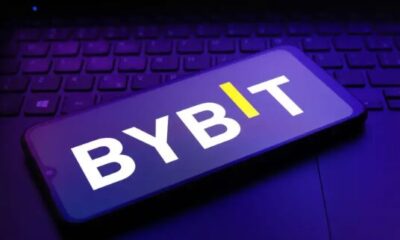Business News
How To Protect Your Investments From Bitcoin Scams In South Africa
Published
2 years agoon

Bitcoin is a transformative technology that promises decentralized and secure financial transactions.
However, with the rise in popularity of cryptocurrencies, South Africa, like many other nations, has witnessed a parallel surge in Bitcoin-related scams.
These scams range from elaborate Ponzi schemes to deceptive investment opportunities, preying on the unsuspecting and the uninformed.
In this article, we will explore the various forms of Bitcoin scams that have infiltrated South Africa’s digital landscape and provide you with essential insights and practical advice on protecting yourself from falling victim to these nefarious schemes. So, read on to get armored against the odds!
What Are Bitcoin Scams?
Bitcoin scams refer to fraudulent activities or schemes designed to deceive individuals into losing their Bitcoin or money through various deceptive means. These scams can take many forms, including Ponzi schemes, fake investment opportunities, phishing attacks, pump-and-dump schemes, fake initial coin offerings (ICOs), and social engineering tactics. These scams aim to exploit the growing interest in cryptocurrencies, like Bitcoin, by tricking unsuspecting individuals into sending their digital assets to scammers or investing in fraudulent projects. People must be alert to these frauds and implement measures to safeguard their Bitcoin and money.
Steps To Avoid Bitcoin Scams In South Africa
Protecting your investments from Bitcoin scams in South Africa requires a combination of vigilance, education, and proactive measures. Here are essential steps to help safeguard your Bitcoin holdings from fraudulent schemes:
1. Choose Reputable Exchanges
Selecting a reputable cryptocurrency exchange is paramount when trading or investing in Bitcoin. Research and opt for exchanges with a proven security, reliability, and regulatory compliance track record like the Ethereum Code. In South Africa, consider platforms that have registered with local authorities or comply with relevant regulations to ensure the safety of your investments.
2. Secure Your Wallet
Your choice of a cryptocurrency wallet significantly impacts the security of your Bitcoin holdings. Hardware wallets, like the Ledger and the Trezor, store your secret passwords offline, adding an added degree of security. Alternatively, reputable software wallets with strong security features, like Electrum or Exodus, can be used. 2FA increases the difficulty for outsiders to gain entry to the wallet.
3. Educate Yourself
Studying Bitcoins and the crypto industry would be best to keep your money safe. Take the time to educate yourself about how blockchain technology works, the nature of digital assets, and the potential risks involved. Educating oneself to ensure you can recognize red flags and respond cautiously is the greatest approach to safeguard yourself from fraud.
4. Verify Sources of Information
In the digital age, misinformation and fraudulent schemes spread easily through various channels. Always verify the sources of information related to Bitcoin investments. Be cautious of unsolicited emails, direct messages on social media, or messages from unknown individuals claiming to offer lucrative opportunities. Rely on information from reputable news sources and official channels.
5. Avoid Suspicious Offers
You should be careful of deals that seem too tempting to be real. Scammers often lure victims with promises of astronomical returns with minimal risk. Remember that legitimate investments come with a degree of risk, and anyone guaranteeing huge profits with no downside is likely attempting to defraud you. Be skeptical and careful when presented with such proposals.
6. Conduct Due Diligence
Do your homework before putting money into any cryptocurrency-related initiative or chance. Research the project’s background, team members, and past performance. Look for cryptocurrency-related resources like reviews, feedback, and impartial ratings. Legitimate projects should have a transparent and credible track record.
7. Use Cold Storage
You should consider maintaining a sizeable quantity of your Bitcoin off the grid, out of the reach of online hackers, in a secure location known as “cold storage.” Cold storage methods, such as hardware or paper wallets, protect against online threats, including hacking and phishing attacks.
8. Keep Private Keys Secure
Your Bitcoin wallet is just as secure as the keys you provide allow it to be. Never give them to anybody else; don’t save them anywhere online. Private keys should be kept physically secure, such as in a safe or secure location. Be cautious of phishing attempts online and through communication channels like email or messaging apps, as scammers often try to trick you into revealing your private keys.
9. Report Scams
Take urgent action if you encounter a Bitcoin scam or suspect you are a victim. Please notify the South African officials and any applicable regulatory bodies of the event. Sharing your experience can help warn others within the cryptocurrency community, potentially preventing further scams and protecting fellow investors.
10. Stay Educated About Regulations
Learn as much as you can regarding the cryptocurrency regulations in South Africa. Understand the legal requirements and obligations associated with cryptocurrency trading and investments. Staying compliant with regulations ensures that your investments remain secure from legal issues.
11. Diversify Your Portfolio
Avoid putting all your Bitcoin holdings in a single investment or platform. Diversifying your portfolio across cryptocurrencies, assets, or investment strategies can help mitigate risk. Certain financial investments may help cushion the blow if others also experience losses.
12. Trust Your Instincts
Finally, always trust your instincts. It is important to act cautiously or to ignore it entirely if a chance to invest or offer seems too tempting to be genuine or raises concerns. Don’t allow emotions or FOMO (Fear of Missing Out) to drive your decisions; instead, rely on rational judgment and prudence.
Reporting Bitcoin Scams In South Africa
In South Africa, as in many other countries, individuals who have fallen victim to Bitcoin scams have legal options for reporting these fraudulent activities and seeking redress. Victims of Bitcoin scams in South Africa should report the incident to local law enforcement agencies, such as the South African Police Service (SAPS). Provide as much detail as possible about the scam, including the scammer’s contact information, transaction records, and any relevant evidence.
The FIC in South Africa plays a crucial role in combating financial crimes, including cryptocurrency-related scams. Victims can report suspicious transactions and activities related to Bitcoin scams to the FIC for further investigation.
There are both federal and state protective bodies in South Africa. Victims can seek assistance from these agencies in pursuing legal action against scammers. Victims of Bitcoin scams may choose to pursue civil litigation against the scammers. This involves filing a lawsuit in a civil court to recover lost funds. Consulting with an attorney experienced in cryptocurrency-related cases is advisable.
If the Bitcoin scam involves criminal activities, such as fraud, identity theft, or money laundering, victims can work with law enforcement agencies to press criminal charges against the perpetrators. Prosecution may lead to imprisonment and asset recovery.
Conclusion
Safeguarding your Bitcoin investments in South Africa requires vigilance, knowledge, and caution. You can confidently protect your assets and navigate the cryptocurrency landscape by staying informed, using secure practices, and being aware of potential scams. Protect yourself and your money by learning as much as possible and making educated choices.
You may like
-
Abu Dhabi’s MGX Invests $2 Billion in Binance in Major Crypto Funding Deal
-
Bitcoin’s Fear & Greed Index Hits Extreme Fear: A Golden Opportunity for Investors?
-
Bitcoin Slides 10% as Nasdaq’s Bearish Reversal Clouds Long-Term Outlook
-
Trump’s Crypto Reserve Plan Backfires as Major Tokens Crash 21%
-
FBI Links North Korea to Record $1.5 Billion Crypto Heist from Bybit
-
Bitcoin Rout Worsens Amid Trump Tariff Tensions and Economic Concerns














